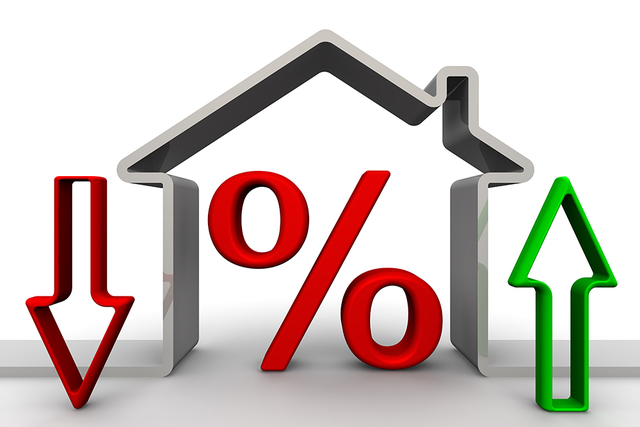Right time to refi: Mortgages near record low
Mortgage rates slid to their lowest level in almost three months, giving homeowners another shot at refinancing.
The benchmark 30-year fixed-rate mortgage fell this week to 3.54 percent from 3.62 percent, according to Bankrate’s weekly survey of large lenders. That’s barely above the record low of 3.5 percent, set in December 2012.
About 170,000 homeowners remain who are eligible and would save money by refinancing under the Home Affordable Refinance Program, according to the Urban Institute.
Another 4.3 million borrowers could benefit from refinancing outside HARP.
Fear in Europe
“I think it’s a fear play,” says Mike Chadwick, owner of Chadwick Financial Advisors, in Unionville, Connecticut.
Fears have materialized in the last few days about the financial strength of Deutsche Bank in Germany. The concern has led to a sell-off of shares.
Stock prices tumbled for Royal Bank of Scotland, too, which performed relatively weakly in a stress test by regulators.
At the same time that investors bailed out of those banks, there was a flurry of purchases of Treasuries and other American bonds, which are perceived as safe investments.
The buying spree sent Treasury and mortgage bond yields down, and mortgage interest rates followed.
Mortgage rates this week
The last time the 30-year fixed rate fell lower than this was in Bankrate’s July 6 survey when it averaged 3.52 percent. A year ago, it was 4.01 percent. Four weeks ago, the rate was 3.57 percent.
The mortgages in this week’s survey had an average total of 0.22 discount and origination points.
Over the past 52 weeks, the 30-year fixed has averaged 3.81 percent. This week’s rate is 0.27 percentage points lower than the 52-week average.
■ The benchmark 15-year fixed-rate mortgage fell to 2.82 percent from 2.91 percent.
■ The benchmark 5/1 adjustable-rate mortgage fell to 3.04 percent from 3.09 percent.
■ The benchmark 30-year fixed-rate jumbo mortgage fell to 3.54 percent from 3.63 percent.
Don’t worry about the Fed
Sometimes, such a “flight to safety”depresses mortgage rates temporarily, and then they rebound. Chadwick says he believes this decline will last a while.
”Clearly, things are not well in Economic Land across the globe,” he says.
The U.S. economy is performing better than a lot of foreign economies, and so the Federal Reserve seems likely to raise the overnight interest rate by year’s end. But don’t think that this means mortgage rates will automatically rise.
Sometimes, mortgage rates move in the same direction as the federal funds rate, and sometimes they move in the opposite direction. The federal funds rate is what banks charge one another for overnight loans, while the most popular mortgages have interest rates that are fixed for 30 or 15 years.
If the Fed raises rates this year, “the impact is not going to be all that material in the cost of borrowing,” says Steve Udelson, president of Owners.com, a national real estate brokerage.
He says he’s more concerned about rising house prices than rising interest rates.


















